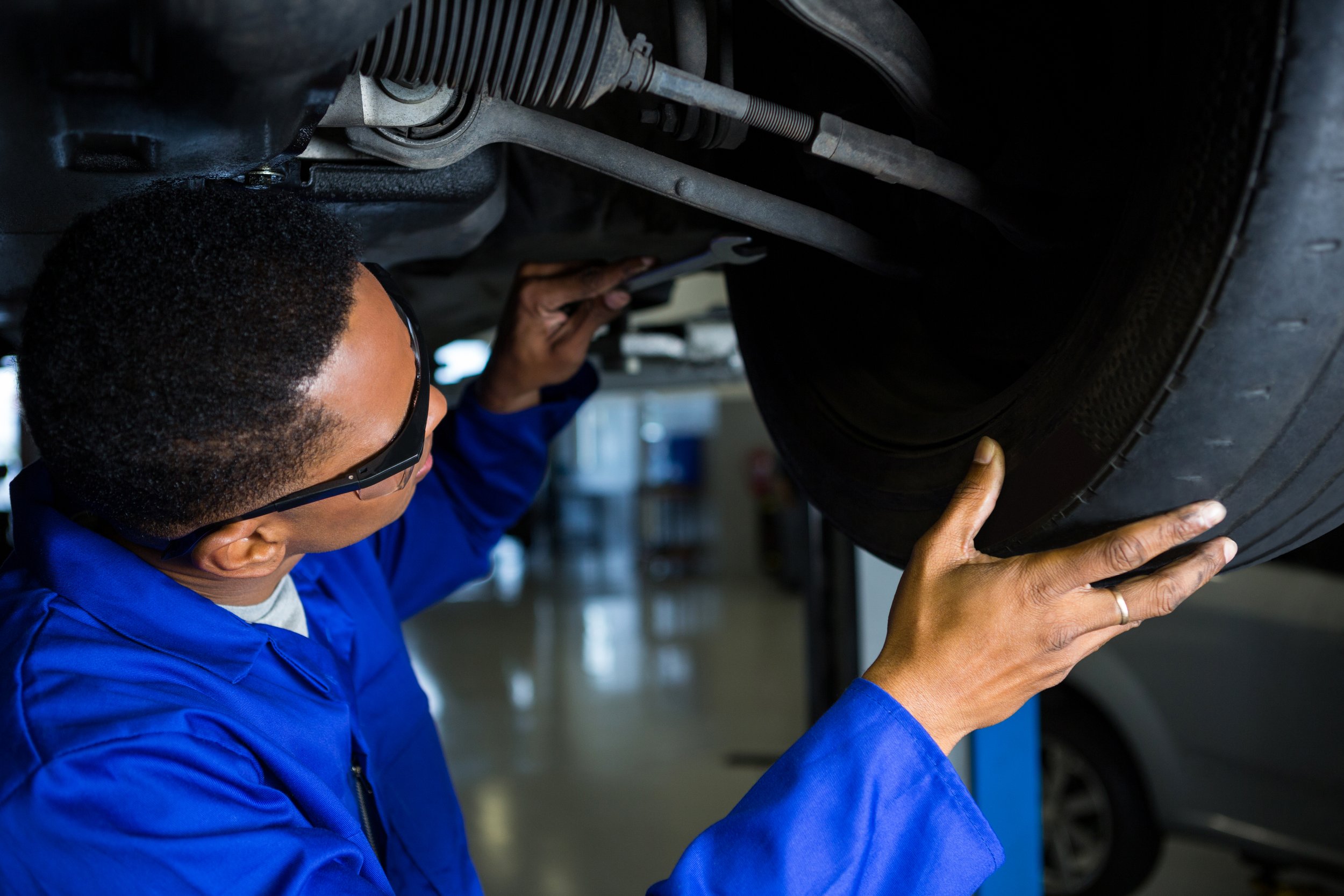Understanding Drivetrain Repairs and Maintenance
Prevent drivetrain issues with regular fluid checks, inspections, wheel alignment, tire rotations, and prompt attention to unusual noises.
The drivetrain is vital to any vehicle; it transfers power from the engine to the wheels. Proper maintenance and timely drivetrain repairs are essential for optimal vehicle performance, fuel efficiency, and longevity.
Understanding the basics of drivetrain systems can help owners and operators of personal vehicles and commercial fleets improve their maintenance practices and make more informed decisions about repairs.
Components of the Drivetrain
A typical drivetrain consists of several key components, each playing a vital role in the vehicle's operation:
Transmission: The transmission adjusts the gear ratio between the engine and drive wheels, allowing the engine to operate efficiently at various speeds.
Driveshaft: The driveshaft transmits rotational power from the transmission to the differential.
Differential: The differential permits the wheels to rotate at different speeds when turning corners, distributing power to the drive wheels.
Axles: Axles support the vehicle's weight and transmit power from the differential to the wheels.
CV Joints: Constant Velocity (CV) joints allow the driveshaft to transmit power through variable angles, accommodating suspension movement.
Common Drivetrain Issues
Several issues can affect the drivetrain's performance and require attention:
Transmission Problems: Symptoms may include slipping gears, delayed engagement, or unusual noises. These issues can stem from low fluid levels, worn clutches, or damaged gears.
Driveshaft Vibrations: Excessive vibrations while driving could indicate a bent or unbalanced driveshaft, worn universal joints, or misaligned components.
Differential Leaks: Oil leaks from the differential can lead to inadequate lubrication and premature wear of gears and bearings.
CV Joint Failures: Clicking noises when turning or vibrations at highway speeds often signal worn or damaged CV joints.
Axle Damage: Bent or broken axles can result from severe impacts or long-term stress, causing alignment issues and compromising vehicle safety.
Preventative Maintenance
Regular maintenance is critical to preventing many drivetrain issues:
Fluid Checks and Changes: Regular inspection and replacement of transmission and differential fluids help maintain proper lubrication and cooling of components.
Inspections: Visual inspections can identify early signs of wear, leaks, or damage before they escalate into major problems.
Alignment Checks: Proper wheel alignment reduces stress on drivetrain components and improves overall vehicle handling.
Tire Rotation: Regular tire rotation promotes even wear and can prevent undue stress on drivetrain components.
Addressing Strange Noises or Vibrations: Investigating and promptly addressing unusual sounds or vibrations can prevent minor issues from becoming major repairs.
Professional Drivetrain Repairs
While vehicle owners can perform some basic maintenance tasks, many drivetrain repairs require specialized knowledge and equipment. Professional diesel repair technicians have the expertise to diagnose complex issues and perform intricate repairs:
Transmission Rebuilds: A complete overhaul of the transmission may be necessary for vehicles with high mileage or severe damage.
Differential Service: Replacing worn gears, bearings, and seals in the differential requires precision and specialized tools.
CV Joint Replacement: Replacing damaged CV joints or boots involves carefully disassembling and reassembling axle components.
Driveshaft Balancing: Professional balancing equipment can correct vibrations caused by an unbalanced driveshaft.
Computer Diagnostics: Modern drivetrains often incorporate electronic controls, requiring advanced diagnostic tools to identify and resolve issues.
The Importance of Quality Parts
High-quality replacement parts are crucial for the drivetrain's longevity and performance when repairs are necessary. While aftermarket parts may offer cost savings, OEM (Original Equipment Manufacturer) parts often provide better fitment and durability. A reputable repair shop can advise on the best options for specific vehicles and driving conditions.
Advances in Drivetrain Technology
As vehicle technology evolves, so do drivetrain systems. Modern advancements include:
Continuously Variable Transmissions (CVTs): These provide seamless power delivery and improved fuel efficiency.
Dual-Clutch Transmissions: Offering faster shift times and improved efficiency, these are becoming more common in performance and luxury vehicles.
Electric and Hybrid Drivetrains: With the rise of electric vehicles, new types of drivetrains are emerging, requiring specialized knowledge for maintenance and repair.
All-Wheel Drive Systems: Increasingly sophisticated AWD systems distribute power more efficiently across all four wheels.
Staying informed about these advancements can help vehicle owners make informed decisions about maintenance and upgrades.
The drivetrain is a complex and vital system in any vehicle, requiring regular attention and care to function optimally. By understanding the basics of drivetrain components and common issues, vehicle owners can better maintain their vehicles and recognize when professional assistance is needed. Regular maintenance, prompt attention to emerging problems, and reliance on skilled technicians for complex repairs can significantly extend the life of a vehicle's drivetrain. As drivetrain technology continues to advance, the expertise of professional diesel repair technicians becomes increasingly valuable in navigating the complexities of modern vehicle systems, ensuring safety, efficiency, and performance for years to come.
KTS Enterprise in Phoenix offers comprehensive mobile fleet truck repairs catering to client needs, from preventative service to major repairs. We offer mobile and in-shop repair, lube and oil changes, annual dot and bit inspections, check engine and dash lights, suspension repairs, drivetrain repairs, and tire solutions.

